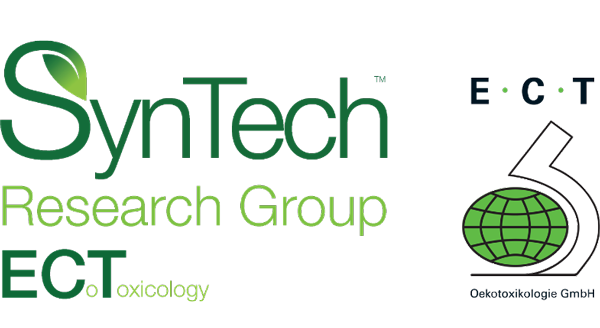Aquatic Organisms
ECT offers a wide range of aquatic ecotoxicological standard tests under GLP according to OECD, ISO and EPA guidelines. This includes tests with aquatic micro-organisms, algae, higher plants, crustaceans, insects and fish. Most standard test organisms originate from our inhouse cultures. In addition, we have vast experience with establishing cultures in our facilities. We can adapt test designs to the specific requirements of the test substance or the exposure scenario (e.g. perform freshwater algae growth inhibition tests under flow-through conditions with intermittent exposure). Our standard species in fish tests are zebrafish (Danio rerio), fathead minnow (Pimephales promelas) and rainbow trout (Oncorhynchus mykiss). We further develop and conduct tests with non-standard aquatic test organisms and multi-species test systems and are familiar with species sensitivity distributions.
| Aquatic Micro-Organisms | Guideline |
|---|---|
| Activated Sludge, Respiration Inhibition Test | OECD 209 (2010) |
| Determination of the Inhibitory Effect of Water Samples on Light Emission of Vibrio fischeri (Luminescent Bacteria Test) | ISO 11348-2 (2007) |
| Aquatic Plants | Guideline |
|---|---|
| Freshwater Algae and Cyanobacteria, Growth Inhibition Test | OECD 201 (2011) |
| Freshwater Algal Growth Inhibition Test with Unicellular Green Algae | ISO 8692 (2012) |
| Algal toxicity | OCSPP 850.4500 (2012) |
| Cyanobacteria (Anabaena flos-aquae) Toxicity | OCSPP 850.4550 (2012) |
| Freshwater Algal Growth Inhibition Test with Unicellular Green Algae on Microplates | DIN 38412-59 (2022) |
| Determining the Tolerance of Green Algae to the Toxicity of Waste Water (Scenedesmus Chlorophyll Fluorescence Test) by way of Dilution Series | DIN 38412-33 (1991) |
| Lemna sp. Growth Inhibition Test | OECD 221 (2006) |
| Determination of the Toxic Effect of Water Constituents and Waste Water on Duckweed (Lemna minor) – Duckweed Growth Inhibition Test | ISO 20079 (2005) |
| Aquatic Plant Toxicity Test Using Lemna spp. | OCSPP 850.4400 (2012) |
| Water-Sediment Myriophyllum spicatum Toxicity Test | OECD 239 (2014) |
| Sediment-Free Myriophyllum spicatum Toxicity Test | OECD 238 (2014) |
| Water-Sediment Glyceria maxima Toxicity Test | Ring-test Protocol (2022) |
| Aquatic Crustaceans | Guideline |
|---|---|
| Acute Immobilisation Test (Daphnia magna); non-standard test species on request (e.g. Ceriodaphnia cf. dubia, Daphnia pulex, Daphnia hyalina/galeata) | OECD 202 (2004) |
| Determination of the Inhibition of the Mobility of Daphnia magna Straus (Cladocera, Crustacea) – Acute Toxicity Test | ISO 6341 (2012) |
| Aquatic Invertebrate Acute Toxicity Test, Freshwater Daphnids | OCSPP 850.1010 (2016) |
| Determining the Tolerance of Daphnia to the Toxicity of Waste Water by way of a Dilution Series | DIN 38412-30 (1989) |
| Daphnia magna, Reproduction Test | OECD 211 (2012) |
| Determination of Long Term Toxicity of Substances to Daphnia magna Straus (Cladocera, Crustacea) | ISO 10706 (2000) |
| Daphnid Chronic Toxicity Test | OCSPP 850.1300 (2016) |
| Ceriodaphnia cf. dubia Reproduction Test | based on ISO 20665 (2008), OECD 211 (2012), EPA-821-R-02-013 |
| Aquatic Insects | Guideline |
|---|---|
| Chironomus sp., Acute Immobilisation Test | OECD 235 (2011) |
| Fish | Guideline |
|---|---|
| Fish Embryo, Acute Toxicity | OECD 236 (2013) |
| Determination of the Acute Toxicity of Waste Water to Zebrafish Eggs (Danio rerio) | ISO 15088 (2007) |
| Fish, Short Term Toxicity Test on Embryo and Sac-Fry Stages | OECD 212 (1998) |
| Fish, Acute Toxicity Test | OECD 203 (2019) |
| Fish, Juvenile Growth Test | OECD 215 (2000) |
| Fish, Early-life Stage Toxicity Test (read more) | OECD 210 (2013) |
| Fish, Partial Life-Cycle Test | OECD DRP 95 (2008) |
| Fish (Endocrine Activity) | Guideline |
|---|---|
| Fish, Short-term Reproduction Assay (read more) | OECD 229 (2012) |
| 21-day Fish Assay: A Short-Term Screening for Oestrogenic and Androgenic Activity, and Aromatase Inhibition | OECD 230 (2009) |
| Fish, Sexual Development Test | OECD 234 (2011) |
| Fish, Partial Life-Cycle Test with non-standard endpoints on request | OECD DRP 95 (2008) |

